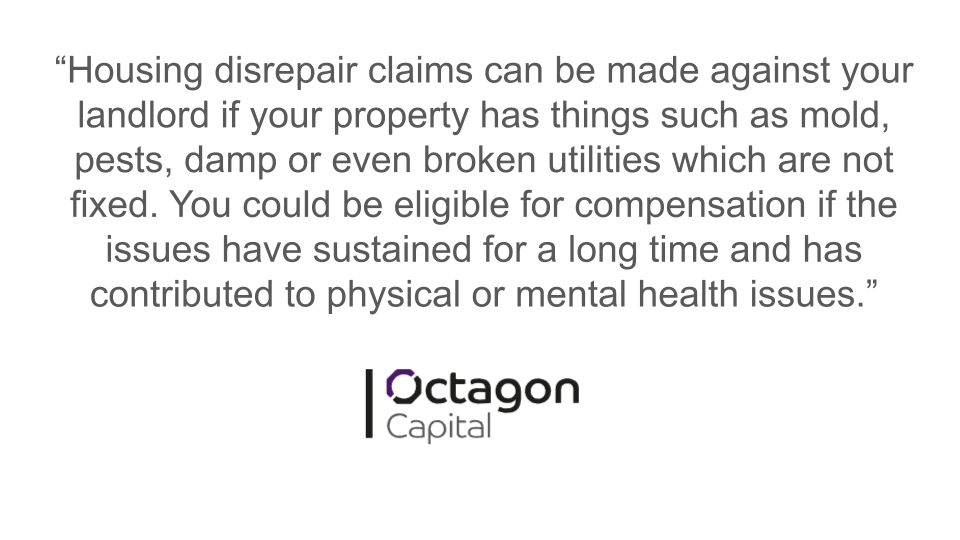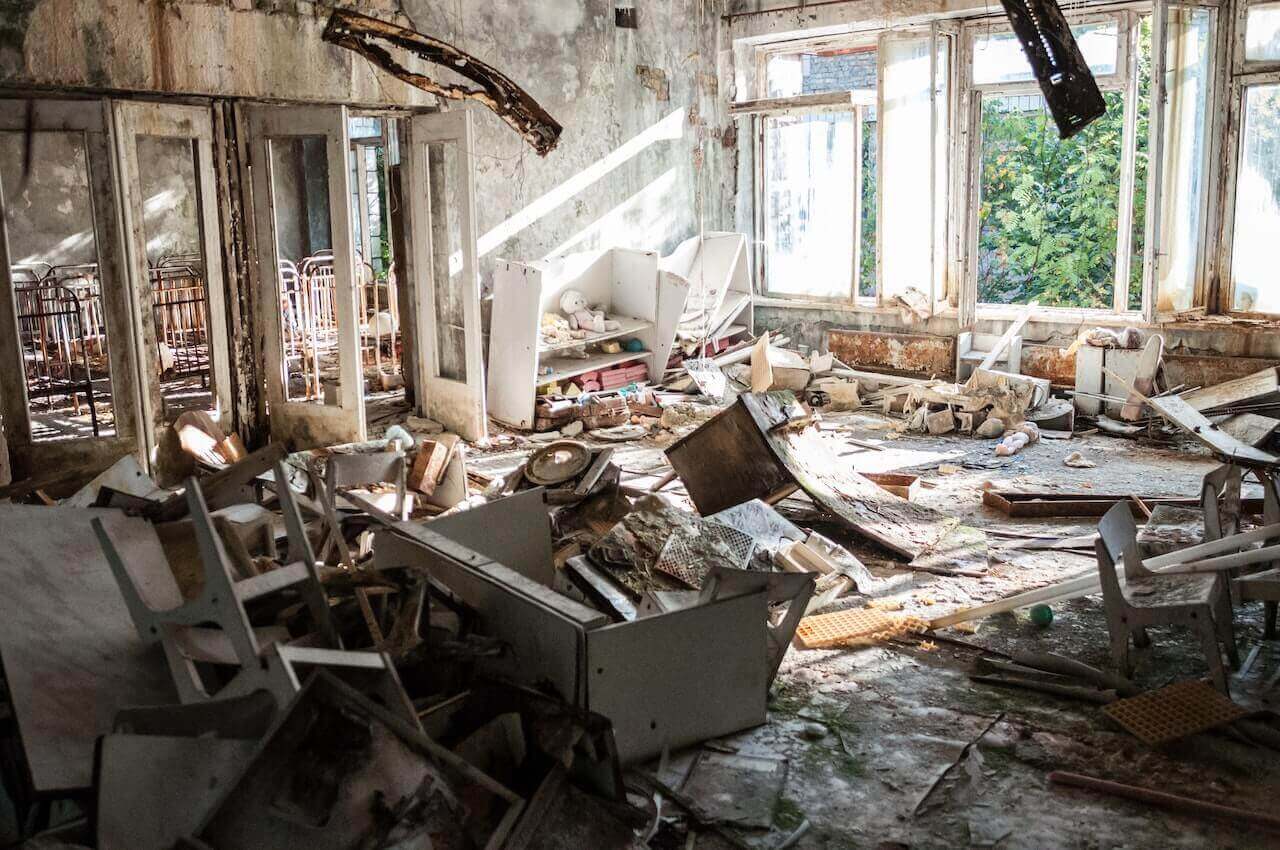Housing disrepair claims can be made against your landlord if any aspect of the property or building that you live in has not been fixed or upgraded and has caused detrimental issues to your health or quality of live. The process essentially involves seeking compensation from your landlord or property owner either through the court or via legal action.
When living in rent accommodation, the tenant has a right for the property to be in a certain condition and maintain a certain level of standard – and it is the landlord’s responsibility to maintain this, unless there are viable e
Housing disrepair is defined as the ‘poor condition of a building or structure due to neglect’. This means that work needs to be carried out in order to make the property safe to live in, and can include problems such as lack of heating, mould, and broken toilets. If you rent and your landlord isn’t providing you with safe accommodation, you could be eligible to claim for housing disrepair compensation.
There are 76,814 “non-decent” properties in the UK, according to the English Housing Survey, and 1 in 7 Council Homes do not meet the National Standard. With the current cost of living crisis, more and more rentals are slipping under the minimum standards of safety. If your landlord is refusing to safely maintain your home, you could be entitled to claim compensation.
What is Housing Disrepair?
Housing Disrepair is when your landlord does not carry out repairs on your rented property, resulting in your home being of an unsafe living standard. Legally, by paying rent, tenants are entitled to a clean and safe property to live in.
The definition of disrepair is broad, and it covers problems such as pests, dampness, mould, lack of heating, and unsafe floors and stairs. Any type of rental property is eligible, including flats, houses, council homes, and even Airbnb properties.
Tenants renting homes in a state of disrepair may face ill consequences to their lives. For example, a house infested with mould can cause health problems, as well as damage to a tenant’s personal belongings such as clothes and bedding. It could even leave rooms unusable.
If your landlord is refusing to carry out necessary repairs, you can claim for Housing Disrepair. A lot of the time, court proceedings are not even required, as this process can put pressure on landlords to act quickly to do the right thing.

Am I eligible to claim for Housing Disrepair?
You could be eligible to claim if your property hasn’t been safely maintained by your landlord and fall under any of these categories::
- You rent a council house
- You rent a housing association property
- You are in private rented accommodation
Living in unsafe properties can take a toll on tenants’ physical and mental health, which is a viable reason to claim for Housing Disrepair. This can include personal injury, medical bills, sickness from mould, or even depression.
If you believe you fall under any of these categories, you could be eligible to claim for Housing Disrepair. You can also check here to see if you are eligible by filling out a short form.
How does it work?
You are legally entitled to live in a safe home. If you have already reported safety issues to your landlord which they have failed to fix, you could claim Housing Disrepair and force them to complete the work and potentially even win yourself financial compensation.
Before filing a claim, you must notify your landlord of the problem and then wait 21 days. This gives landlords time to rectify the problem on their own. Make sure to do this in writing (such as a text message or an e-mail) so that you have a record of it.
You must also collect evidence of disrepair. This includes photos, medical bills, professional reports from surveyors, and the aforementioned request to your landlord. Any proof you can collect might be helpful.
If your landlord has not started the process of fixing the property’s safety issues within the time period, you can claim for Housing Disrepair. A typical claim can take around 9 to 12 months, but larger or more complex claims can take up to a year, or a year and a half. The average amount of money rewarded is £1,200.
